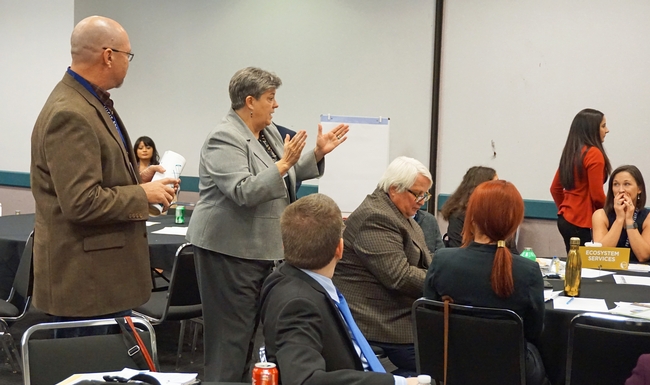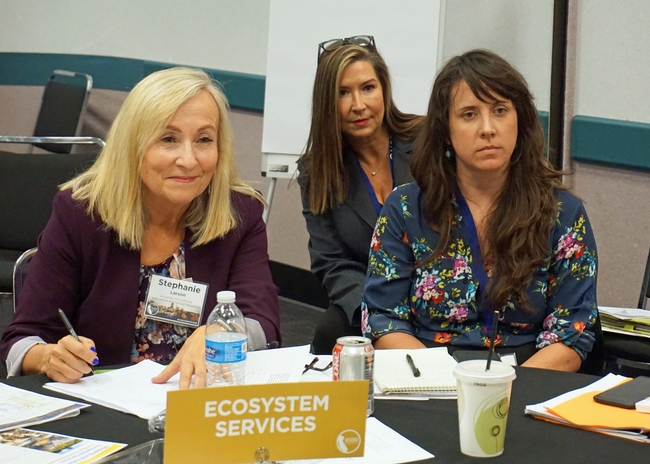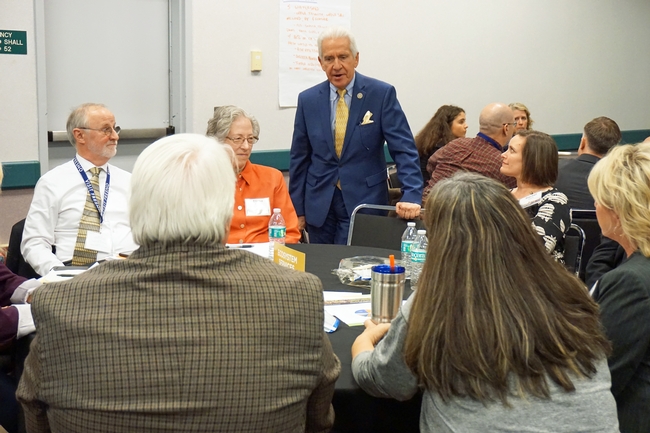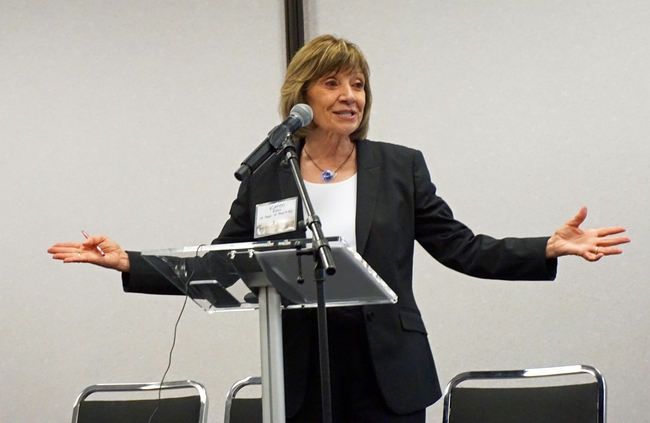To protect California ecosystem services, they must be valued
The ecosystem services of landscapes in California are essential to the state's future, but many people take them for granted.
In addition to direct economic outputs, working landscapes – farms, rangelands, forests and fisheries, to name a few – sequester carbon, capture water, support wildlife, offer picturesque views and make space for hiking, skiing, boating and other recreational activities.
“We need to put a value to ecosystem services, from an economic standpoint, that incentivizes people who own and manage these landscapes so they can continue to manage them for everyone's benefit,” said Stephanie Larson, UC Cooperative Extension rangeland advisor in Sonoma County.
When ecosystem services have been monetized, proper compensation can be calculated, ensuring benefits like clean water, fresh air and a livable climate are protected for future generations.
In November, UC Agriculture and Natural Resources released a report at the California Economic Summit in Fresno on the value of California's working landscapes. The report determined the state's working landscapes generate $333 billion in annual sales and 1.5 million jobs. That number does not include ecosystem services.
“The value of ecosystem services is probably higher than the $333 billion direct economic contribution of working landscapes outlined in the report,” said Glenda Humiston, University of California vice president for agriculture and natural resources. Humiston is chair of the economic summit's working landscape task force. “The problem is, when we don't have that quantified, it's hard to make investments to make sure those ecosystem services are maintained.”
Humiston said that, in time, systems can be developed for the public to support the ecosystem services they enjoy.
“You might have a small surcharge on binoculars,” she said. “That money could be used to protect bird habitat so birders can go somewhere to see birds. Water districts might assess a surcharge on your water bill to pay for the forested watersheds where they are getting your water. There are many different mechanisms to do this. We're trying to figure out what would be the best mechanism.”
During the summit, a team of researchers, policymakers and industry professionals launched a new phase of work to calculate with scientific accuracy the value of ecosystem services. Larson is a member of the leadership team, along with executive director of the Central Valley Partnership Dan O'Connell and Sequoia Riverlands Trust director of pubic planning and policy Adam Livingston.
The team is working with partners to secure funding and technical support to integrate data sets already available from the Council of Governments' Rural-Urban Connections Strategy into an open source, statewide system for mapping ecosystem services.
Once the tool is established, the team will be ready to pilot test it in four areas of California that provide ecosystem services.
“I love this concept,” said Kenny Spain, economic development specialist with the Headwaters Fund in Humboldt County and a member of the task force. “It's a valuable tool.”
Learn more:
View a 4-minute video of UC ANR vice president Glenda Humiston announcing the release of the report, California's Working Landscape: A Key Contributor to the State's Economic Vitality, at the 2019 California Economic Summit.
View California Governor Gavin Newsom's keynote address at the 2019 California Economic Summit:






